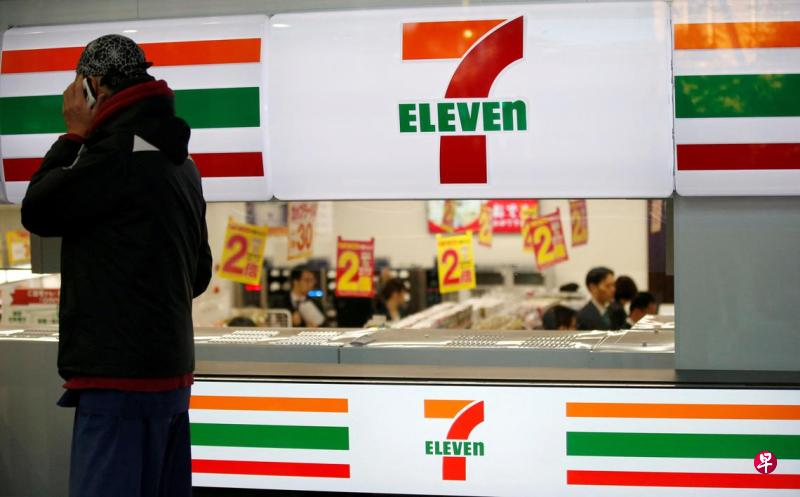For anyone who has stepped into a 7-Eleven store in Japan, the rationale behind Canadian convenience store giant Alimentation Couche-Tard‘s potential multi-billion dollar acquisition of the company becomes instantly clear. These are not just places to grab a quick snack; they offer a shopping environment that is remarkably clean, service that is strikingly efficient, and a food selection that is genuinely delicious and varied.
From Western Import to Japanese Institution
Like automobiles, electronics, or railways, the convenience store concept, though originating in the West, was arguably perfected in Japan. The deep embedding of the ‘konbini’ culture into daily Japanese life transformed 7-Eleven‘s operator, Seven & i Holdings, into a global retail titan with a market capitalization hovering around ¥5 trillion (approximately S$44.7 billion). Japan’s convenience stores are renowned for their high standards, diverse services (ranging from bill payment and banking to postal services), and carefully curated product ranges that cater deeply and quickly to local consumer needs – a service and quality benchmark often quite different from the typical convenience store experience found in many other parts of the world.
A Preliminary Bid Confirmed
Alimentation Couche-Tard earlier this week confirmed that it had indeed submitted a preliminary offer to acquire Seven & i Holdings. At this initial stage, specific details regarding the exact transaction price and the structure of the financing remain undisclosed. This significant corporate maneuver follows prior pressure from activist investor ValueAct Capital Management LP, which had publicly urged Seven & i‘s management to sharpen its focus and accelerate the global expansion of the core 7-Eleven convenience store concept, potentially by divesting less strategic assets.

Global Footprints and a Valuation Discrepancy
Japan’s convenience store landscape also includes other major players operating at similar high standards, such as FamilyMart and Lawson Inc. Meanwhile, faced with the dual challenges of a shrinking population and market saturation within its home country in recent years, Seven & i CEO Ryuichi Isaka has already been proactively and aggressively expanding the company’s convenience store empire outside Japan. This includes notable investments, such as spending over US$25 billion (S$32.7 billion) on acquiring large North American fuel and convenience store chains like Sunoco and Speedway. Currently, Seven & i boasts a vast global network totalling approximately 85,000 convenience stores, gas stations, and various retail outlets.
In comparison, Couche-Tard operates a somewhat smaller network, with about 16,700 stores primarily spread across North America and Europe. Despite having fewer locations, Couche-Tard commands a significantly higher market valuation, sitting at approximately US$58.5 billion. This notable valuation discrepancy, where Couche-Tard is valued more highly than Seven & i despite the latter’s much larger store count, suggests the market may be placing a premium on Couche-Tard‘s existing operational efficiency, its market position in less saturated geographies, or its overall growth potential outside of Seven & i‘s more challenging domestic environment.
Analyst Views and Potential Strategies
Mark Chadwick, an analyst with investment research platform Smartkarma, highlights that Couche-Tard‘s offer strongly suggests the market’s perception that Seven & i‘s current valuation is “seriously undervalued.” Chadwick suggests several potential strategies Couche-Tard could pursue should the acquisition be successful. These include directly managing the core 7-Eleven business more aggressively while potentially selling off non-core assets to streamline the conglomerate, or even considering the possibility of re-listing the global 7-Eleven convenience store business as an independent, pure-play retail entity to potentially unlock greater shareholder value. It’s worth noting that Seven & i‘s origins trace back to a single Yokado clothing store opened in Tokyo in 1920, initially operating under the name Ito-Yokado, before its transformation into the global retail giant centered around the 7-Eleven brand we know today.
Revitalizing Retail Through Japanese Standards
The potential acquisition carries significant implications for the convenience retail sector beyond Japan. The prospect of bringing the rigorous standards of quality, cleanliness, service, and innovative offerings synonymous with Japanese convenience stores (the ‘konbini’ model) to markets like North America could fundamentally revitalize the small-format retail shopping experience there, potentially offering a significant competitive advantage against existing players.
High Stakes in Global Retail M&A
This preliminary bid represents a major potential cross-border transaction in the global retail sector. It appears driven by a clear recognition of the latent value within Seven & i‘s vast network, particularly the globally renowned and uniquely Japanese-perfected 7-Eleven concept. A successful acquisition could offer Couche-Tard strategic opportunities for consolidation, operational improvement by applying best practices, and value creation that a combined entity could unlock in various international markets, leveraging the strengths of both organizations. The outcome of these preliminary discussions will be keenly watched across the retail and financial industries.